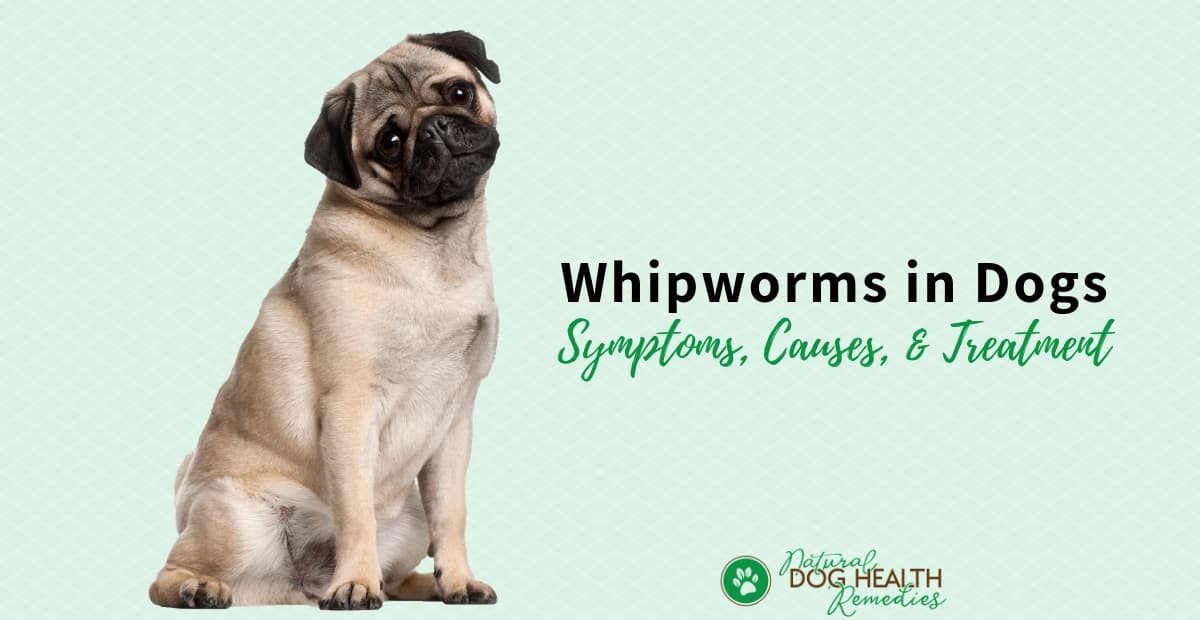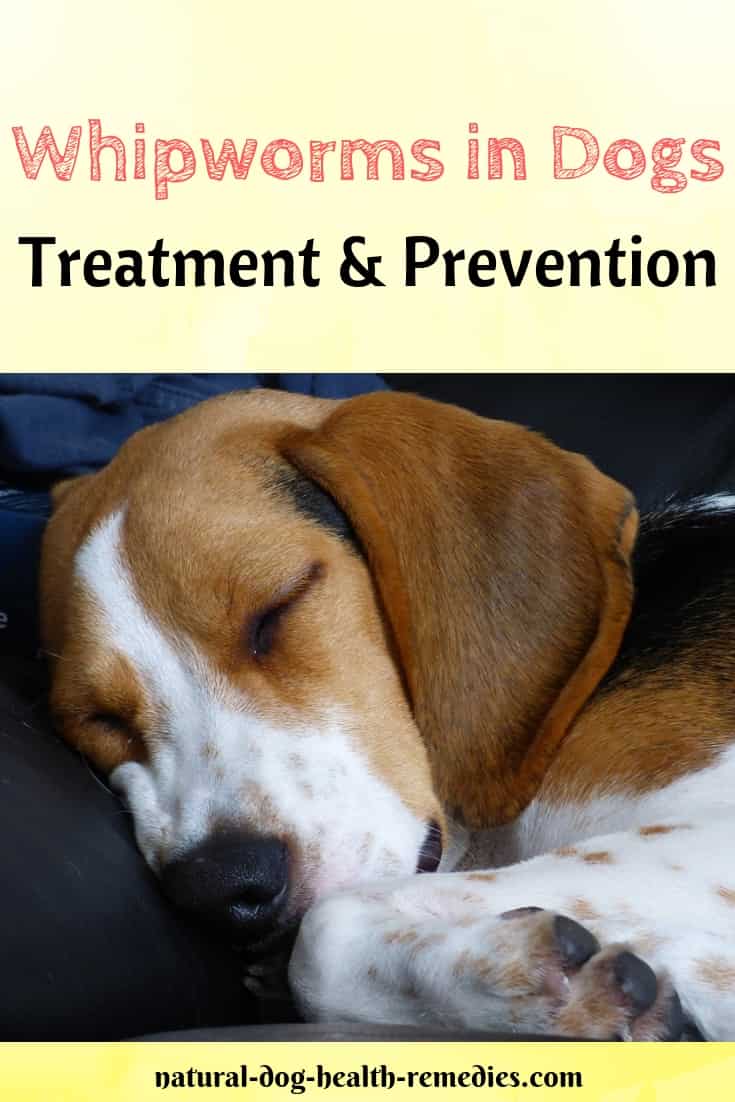Whipworms in Dogs
(FTC Disclosure: If you make a purchase via a link on this page, I may receive a small commission, at no added cost to you.)

Overview
The dog whipworm (Trichuris vulpis) is one of four common intestinal parasites that infect dogs.
The worm is long and slender. The adult worm can reach a length of 4 inches.
Whipworms got their name because of their shape. The front part of the worm is thin like a whip, and the posterior end is thick like a whip handle.
Unlike roundworms, hookworms, and tapeworms which live in a dog's small intestine, whipworms inhabit the large intestine, in particular, the cecum which is where the small intestine and large intestine meet.
How Do Dogs Get Infected?
Dogs can get infected with whipworms if they consume food and/or water contaminated with the eggs of whipworm.
Once the eggs are ingested into the dog's body, they migrate to the dog's gut and hatch. In about 3 months, the larvae grow and mature to the adult stage in the cecum and large intestine.
They adhere themselves to the intestinal wall by their mouths and feed on the dog's blood.
Unlike hookworms and roundworms, whipworm larvae do not migrate to other body tissues.
Adult female worms lay eggs in the intestine and the eggs are passed in the feces, and the life cycle of the whipworms is repeated.
What are the Symptoms of Whipworms in Dogs?
If a dog has mild to moderate infestation of whipworms, he may not show any outward symptoms.
In cases of serious infestation, whipworms can result in inflammation of the intestinal wall, causing the dog's inflamed intestine to produce large amounts of mucus.
Sometimes hemorrhage into the intestine occurs, resulting in anemia.
Dogs with serious whipworm infestation may suffer from:
- Persistent, watery diarrhea (sometimes with blood in the stools)
- Weight loss
- Rough, unkempt haircoats
As you can imagine, if a dog with serious infectation is left untreated, the result could be fatal due to various complications, such as dehydration, and blood loss.
Can Humans Get Whipworms from Dogs?
The dog whipworm (Trichuris vulpis) rarely infects humans, so it is not a threat to our health.
Humans can however be infected by another species of whipworm (Trichuris trichiura), which is spread through human feces.
Diagnosis and Treatment of Whipworms in Dogs
Diagnosis is made by using a microscope to look for eggs in a stool sample. As whipworms are not as prolific as other gut parasites, multiple samples may be needed to get a definite diagnosis.
 As whipworms can wreak havoc to a dog's health, causing such problems as chronic colitis and anemia, it is important to eradicate the worms without delay.
As whipworms can wreak havoc to a dog's health, causing such problems as chronic colitis and anemia, it is important to eradicate the worms without delay.
Consult with your vet as to the most appropriate conventional deworming program for your dog.
Approved medications include antiparasitic drugs such as fenbendazole, milbemycin/lufenuron, and moxidectin (6-month injectable).
In a study, it was found that commercial formulation of milbemycin oxime/lufenuron (e.g. Sentinel Flavor Tabs) was more effective in treating whipworms in dogs than moxidectin (99.6% effective as opposed to 67.5%).
After Care
As mentioned above, whipworms can cause blood loss resulting in anemia in dogs. Therefore, blood-building supplements rich in iron and vitamins should be given to dogs so that new blood can be produced efficiently.

A Great Blood-Building Natural Product
This supplement is designed to help improve the health of blood and the blood forming organs (i.e. the spleen, liver, bone marrow, and kidneys). It contains ingredients rich in RNA/DNA, iron and vitamin B12, which are essential for the formation of hemoglobin.
How to Prevent Whipworms in Dogs
Since whipworms can wreak havoc to a dog's health, it is important to prevent our dogs from getting this parasite in the first place.
Here are a couple of things that you can do to prevent whipworms in dogs:
- Sanitation: Whipworm eggs are very hardy and can survive harsh environments, e.g. freezing, for years. Because of this, yards and kennels should be cleaned daily. All fecal material should be collected and removed.
- Routine Examination: Since whipworms are hard to detect, routine fecal examinations (at least annually) can help control this widespread parasite.
Eldredge, et al. Dog Owner's Home Veterinary Handbook 4th edition (Wiley Publishing, 2007).
C.J. Puotinen, Natural Remedies for Dogs and Cats (Keats Publishing, 1999).
M.L. Wulff-Tilford and G.L. Tilford, Herbs for Pets (Bowtie Press, 1999).
R.H. Pitcairn, The Complete Guide to Natural Health for Dogs and Cats (Rodale, 2005).





